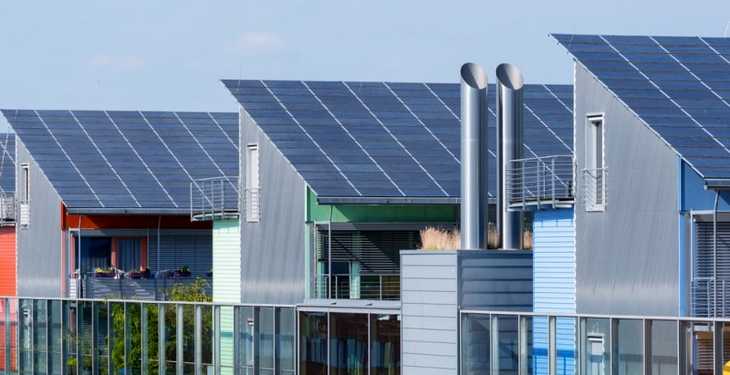Half of EU citizens – including local communities, schools and hospitals – could be producing their own renewable electricity by 2050, meeting 45% of the EU’s energy demand, according to new research quoted by euractiv.com.
The study, performed by Dutch consultancy firm CE Delft, for first time evaluates the potential of decentralised power generation across the continent.
It found that 264 million people in Europe could produce their own renewable electricity by 2050, provided the right regulatory framework is put in place. Sweden is expected to lead the way, with an estimated 79% of the population able to produce their own energy in 2050.
Germany and other EU countries like the Netherlands were praised in the study for championing small-scale energy production by households who can sell their surplus electricity back to the grid at a guaranteed price.
“Across Germany, you would see solar panels on the roofs and hundreds of energy cooperatives flourishing,” said Sebastian Mang, climate change and energy officer at Greenpeace EU, which was among the organisations behind the study.
“But in Spain, there is a ‘sun tax’ which makes it very expensive to install solar panels on your roofs or have energy storage at home. And there is only a handful of cooperatives,” he said.
“Why? ― The market was designed for big actors, not for small actors,” Mang said.
The study was commissioned by environmental NGOs Greenpeace and Friends of the Earth Europe, in association with the European Renewable Energies Federation (EREF) and the European Federation for Renewable Energy Cooperatives (REScoop.eu).
Together, they are calling for the European Commission to enshrine so-called “energy citizens” at the centre of the EU’s flagship Energy Union initiative.
Molly Walsh, a campaigner at Friends of the Earth Europe, said there was a lot that “energy citizens” can do to drive the transition to a low-carbon energy system, citing electric vehicles that can store energy to smart boilers that heat water when electricity demand is lowest.
But data was so far lacking to determine the potential of small-scale renewable electricity generation across Europe, she said – a gap now filled with the new study by CE Delft.
Backers of the “energy citizens” concept are also quick to highlight that the notion is actually wider than just individual households placing solar panels on their rooftops. It also covers municipalities, schools, hospitals or government buildings, as well as small businesses with fewer than 50 employees.
The European Commission is expected to table a revised Renewable Energy Directive and Market Design Initiative in December this year or early next year. Both pieces of legislation are considered crucial to ensure citizens can become active participants in the renewable energy transition.
